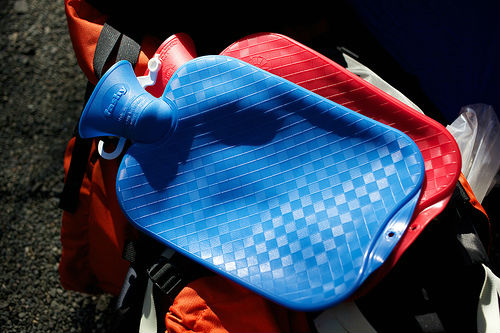If you persistently grind and clench your teeth, most often unintentionally or unconsciously, you might suffer from a condition called bruxism. While this condition is not life-threatening, you must undergo bruxism treatment to prevent irreversible damage to your teeth and their surrounding structures (joints).

Bruxism Treatment – The Factors That Count
A precise treatment for bruxism is based upon certain factors such as:
- Your age
- The cause of bruxism
- Underlying medical problems
- Extent of the damage caused
Bruxism Treatment – How To Deal With The Condition
Bruxism treatment involves providing relief from the pain, managing the damage already done to your dental structure, preventing further damage, and doing away with the habit.
Practice Simple Measures To Limit The Condition
Here are some simple measures you can take to reduce the pain caused by bruxism and deal with the condition:
- Use either a hot water bottle or a cold compress over the jaw muscles to relieve the soreness, or place a warm cloth over your cheeks (just in front of your earlobe) to relax your jaw muscles
- Refrain from eating hard food items like nuts
- Get enough undisturbed sleep at night
- Minimize your levels of stress and anxiety
- Practise relaxation techniques like yoga and meditation
- Reduce the pain and soreness by massaging the muscles of the face, neck, and shoulders to help release stress, or ask someone at home to do it for you
- Drink plenty of water
- Limit your intake of alcohol and caffeinated drinks (coffee, tea and coke), especially at night
- If you habitually chew gum, now is the time to stop it, as constant chewing makes the jaw muscles tense and increases the risk of bruxism
- Do away with habits like chewing on the ends of pencils
- Make a conscious effort to relax your face and jaw muscles during your waking hours
- If you are grinding your teeth when awake, place your tongue between your teeth to stop doing so
Pay A Visit To The Dentist
When you plan a visit to your dentist, ensure that you carry a list of your symptoms, the medication you are currently on, and any queries you have regarding the condition.
If the dentist identifies the cause of bruxism (sleep disorders or certain medicines), he will refer you to a physician who can cure you of the underlying problem. Although not a common practice, your dentist may prescribe a few doses of medication to relax your muscles (muscle relaxants).
He may also prescribe a mouth guard to protect your teeth and prevent them from damage when you clench or grind them.
Give Biofeedback A Shot
Biofeedback is a relatively new technique that aids patients in consciously making an effort not to grind their teeth. It can help you only if you clench or grind your teeth when you are awake and is not to be used if you are a sleep ‘bruxer’.
This technique uses an electronic instrument to detect muscle activity and informs you if there is any increase in the muscle activity usually identified with bruxism. This will help you keep a check on the condition.
Consult A Physical Therapist Or A Counselor
Visit a counselor to help reduce stress levels and make you a calmer person, which in turn reduces bruxism. Seek the aid of a physical therapist to learn stretching exercises, to maintain optimal balance in the muscles of your face, neck, and shoulders.
With plenty of options available for bruxism treatment, it is highly recommended that you immediately get to the root of this troublesome condition, which is not fatal but can definitely damage your teeth!